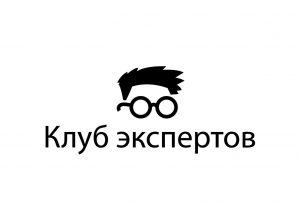
Ukrainians have the most positive attitude toward Germany, the UK, Norway, and France, while Hungary, China, Iraq, and Serbia are among the countries with the worst ratings. This is evidenced by the results of a study conducted by Active Group and the Experts Club analytical center at the end of August.
“We conducted a representative survey of 800 respondents at the end of August, taking into account gender, age, and region of residence. The margin of error does not exceed 3.5%. This is not the first study of this type, but this time we selected 50 countries based on economic criteria – we asked about the countries with which Ukraine trades the most,” said sociologist and founder of Active Group Andriy Yeremenko at a press conference at the Interfax-Ukraine agency on Tuesday.
According to him, the study showed that public opinion is clearly divided between Western countries and countries outside the West.
“Ukrainians most often associate the achievement of peace with the European Union – 42% of respondents believe this. The United States is supported by almost 26% of respondents, and the United Kingdom by 13%. Other large countries, such as China, India, and Brazil, are not really considered to be contributing to a peaceful settlement in Ukraine,” Yeremenko emphasized.
Alexander Pozniy, director of the research company Active Group, added that in economic terms, Ukraine’s key partners are China, Poland, Germany, Turkey, and the United States.
“At the same time, attitudes toward them vary greatly. For example, more than 76% of Ukrainians have a positive attitude toward Germany, while only 12% have a positive attitude toward China, and 40% have a negative attitude. The case of Hungary is even more critical, with 16% having a positive attitude and 55% having a negative attitude,” he said.
Maksym Urakyn, founder of Experts Club and deputy director general of the Interfax-Ukraine news agency, drew attention to economic imbalances in Ukraine’s trade with its leading partners.
“In the first half of 2025, Ukraine’s foreign trade deficit amounted to $18.5 billion, while in 2024 it was $12.4 billion. In other words, we have a significant deterioration. In particular, the negative balance exceeded $7 billion in trade with China alone, $2 billion with Germany, over $1 billion with Poland, and about $2 billion with the United States,” the expert emphasized.
He clarified that Ukraine remains a powerful exporter of agricultural products—grains, oilseeds, metals—while imports from the EU and China consist mainly of machinery, equipment, transport, electronics, and chemicals.
“This once again confirms the need for profound structural changes in the economy and diversification of foreign economic relations. We cannot continue to depend on a narrow circle of suppliers,” Urakin noted.
At the same time, according to the expert, sociological data demonstrate a certain paradox.
“The most economically advantageous partners for us are Egypt, Spain, Moldova, Algeria, Lebanon, and Iraq. But Ukrainians’ attitude toward most of these countries is neutral or even negative. This indicates that society forms its assessments not on the basis of economic benefits, but mainly on the basis of political statements or events,” he added.
Urakin concluded that this discrepancy between the economy and public opinion could have long-term consequences for Ukraine’s foreign policy.
“The representative offices of foreign countries that are Ukraine’s trading partners should pay more attention to working with Ukrainian society, holding cultural events, supporting humanitarian projects, and forming a positive image. Otherwise, we will continue to have a situation where the country is an important trading partner, but at the same time is perceived negatively by the majority of citizens,” emphasized the founder of Experts Club.
Learn more about the study
Source: https://interfax.com.ua/news/press-conference/1103619.html
ACTIVE GROUP, EXPERTS CLUB, INTERNATIONAL TRADE, Pozniy, PUBLIC OPINION, SOCIOLOGY, SURVEY, URAKIN, Єременко

Rural people in general feel more secure than urban residents in the current situation in Ukraine, says political analyst Serhiy Lozovsky.
“People in villages feel themselves the least exposed to danger. And sociological studies confirm this. Rural residents have enough inner strength to secure themselves and their families. As to residents of cities, where government agencies must ensure security, there is a problem which makes them feel less secure in cities,” Lozovsky said, while commenting on a joint survey conducted by the Active Group and the Expert Club in a program on the latter’s YouTube channel.
According to the expert, this is caused by the fact that law enforcers often demonstrate poor response to acts of violence and violation of law.
“This often happens during mass events when law enforcers stand in line and show no response to beatings they witness,” Lozovsky said.
Earlier, at the press center of the Interfax-Ukraine News Agency, the Active Group and the Expert Club presented the results of their second joint survey. This time they studied Ukrainians’ opinion about work of central government agencies and local governments, unemployment growth caused by the quarantine restrictions, the population’s attitude towards official statistics on the coronavirus (COVID-19) incidence rate, as well as the main issues of concern for urban and rural residents.
The survey showed that the population in general negatively treats the incumbent government. Local governments enjoy the highest rating among Ukrainians – 45% of respondents praised their work, 38% said the president was doing a good job, and only around 20% praised the country’s prime minister.
Some 10.5% of those polled said the National Police worked good, while more than 55% said the opposite. Local police stations have the highest rating – 22% praised their work, while 39% said it was bad.
The main issues of concern for urban and rural residents include: quality of roads (54% of respondents), condition of the public facilities (44.7%), condition of the infrastructure inside buildings (43.5%), unemployment (34.2%), housing and utility tariffs (31.1%), mass renaming of streets, cities and villages (29.2%).
Additional information about the survey is available on the website of Active Group and on the Expert Club YouTube channel.
The video is available on the YouTube channel:
ACTIVE GROUP, BOHATYRIOV, EXPERT, EXPERT CLUB, LOZOVSKY, POLL, PUBLIC OPINION, SOCIOLOGY

Active Group and Expert Club have presented a joint sociological survey at the press center of the Interfax-Ukraine News Agency.
The opinion survey covered Ukrainian citizens’ assessment of work of the government and the national police, their attitude to a rise in unemployment and the official statistics on COVID-19 sickness rate, the main issues of concern of urban and rural residents, religion-related problems, etc.
The invited experts – political analyst Serhiy Lozovsky, political expert Valentyn Haidai, political scientist Danylo Bohatyriov, Head of the Active Group sociology company Oleksandr Pozniy – shared their opinions about the results of the survey and commented on the most interesting trends discovered during the poll. The experts came to the conclusion that the ruling party is likely to lose ground, while regional projects will strengthen their positions at the local elections on October 25.
According to the survey, the population in general negatively assesses the work of the central government agencies. Some 38% respondents praised the president’s work and less than 20% said they were positive about work of the prime minister and the Cabinet of Ministers in general. Only 10% of respondents gave a positive assessment of the national police and 22% praised the patrol police (district offices in regions).
Most of the polled Ukrainian citizens are satisfied with the work of local governments: 45% of respondents gave them 4 and 5 points on a scale from one to five.
A total of 33% respondents said that they have experienced changes in their work schedule and employment following the introduction of lockdown restrictions. Some 12.4% switched to remote work, 10.6% left for unpaid vacation, 5% had their work schedule curtailed, 3.1% were laid off, 1.9% left for paid vacation. Meanwhile, 34% of respondents continued to work as regular.
Around 55% of respondents said they did not trust the Health Ministry’s statistics on COVID-19 sickness rate, of them 34.2% said the figures were overstated, 20.5% said the figures were understated. Some 18.6% of those polled fully trust the statistics, 14.9% – trust it partially.
Some 72% respondents said they are religious people (regardless of confession), while 24% said they are atheists.
The main issues of concern mentioned by urban and rural residents include the quality of roads (54%), condition of public spaces (44.7%), condition of domestic infrastructure (43.5%), lack of jobs (34.2%), housing and utility tariffs (31.1%), mass renaming of streets, cities and villages (29.2%).
You can find additional information about the survey on the website of Active Group and on the Expert Club YouTube channel.
The video of the presentation is available on YouTube: https://www.youtube.com/watch?v=ttCb81mQqbk
ACTIVEGROUP, EXPERT, EXPERT CLUB, POLL, PUBLIC OPINION, SOCIOLOGY